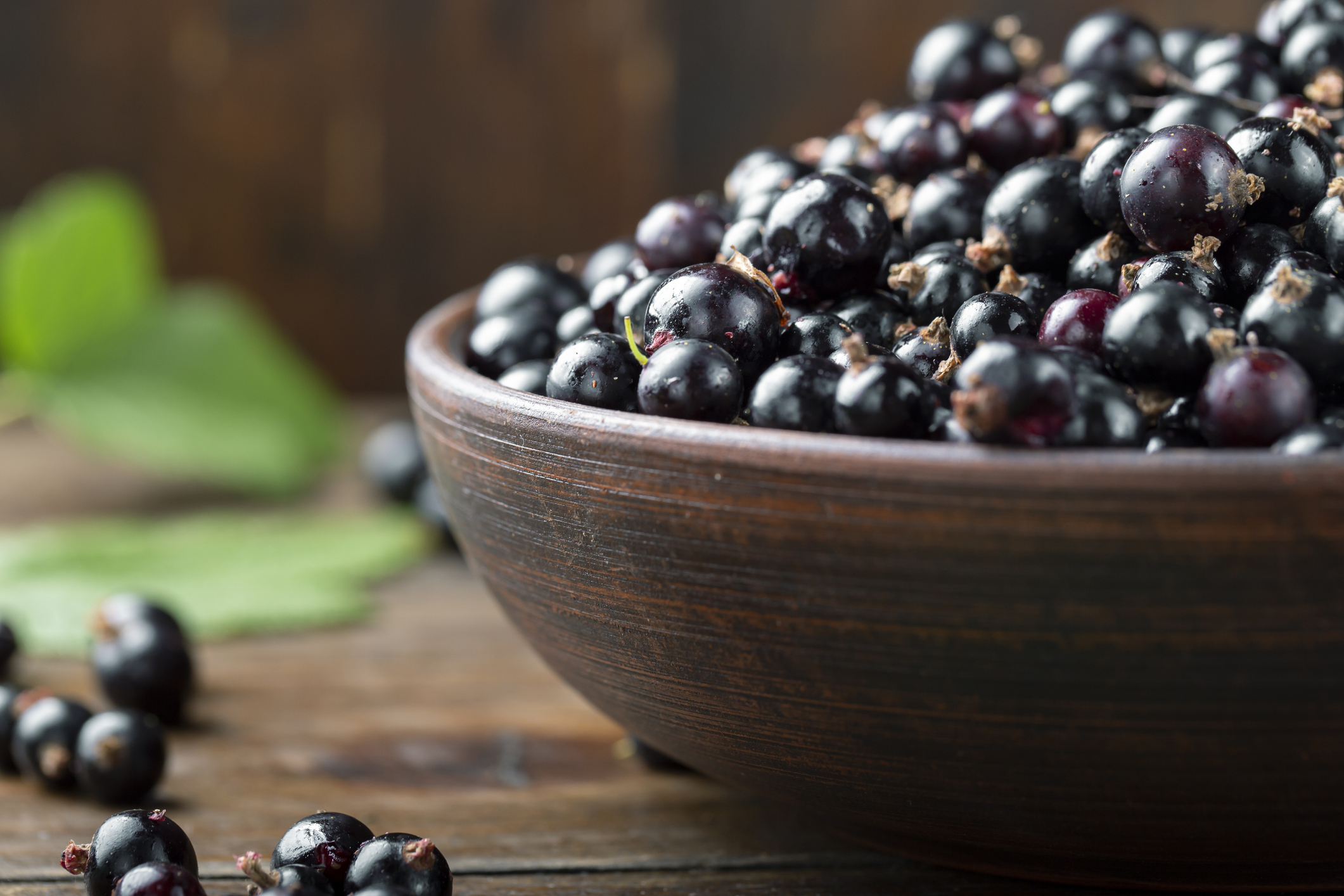Get Easy Health Digest™ in your inbox and don’t miss a thing when you subscribe today. Plus, get the free bonus report, Mother Nature’s Tips, Tricks and Remedies for Cholesterol, Blood Pressure & Blood Sugar as my way of saying welcome to the community!
Blackcurrants’ powerful impact on blood sugar

Have you been struggling to keep your blood sugar levels under control? Dark blackcurrants have a noticeable impact on blood sugar and insulin levels after meals. That’s excellent news for those living on the edge of prediabetes or anyone looking for natural ways to improve insulin sensitivity, avoid blood sugar spikes and improve glucose metabolism.
The dark berries, in general, offer a myriad health benefits, including fiber and anthocyanins. Anthocyanins have preventative and therapeutic properties such as lowering cardiovascular disease and stroke risk.
The benefits of eating the dark berries are often linked back to their polyphenol compounds, which slow down the absorption of glucose from the small intestine, reduce oxidative stress to the cells, and decrease inflammation.
And now, Researchers from the University of Eastern Finland have demonstrated that blackcurrants are favorable for glucose metabolism — and it doesn’t take that much…
The berry that improves insulin sensitivity
In recent years, there have been many studies monitoring the effects of berries on glucose metabolism, with dark berries, such as blackcurrant and bilberry, having the most convincing results.
Blackcurrants are high in vitamin C, very tart and have a lower glycemic index of 22. Normally these naturally sour berries are eaten with sugar, which might seem counterintuitive since we’re talking about its positive effects on glucose metabolism.
However, it seems that sugar consumed with blackcurrants is not as unhealthy as sugar consumed without the berries…
In this most recent study, 26 healthy participants (22 female, 4 male) consumed three different test products and sugar water as a control product at four separate study visits. The test products were a blackcurrant purée with added sugar, a blackcurrant product containing fermented quinoa, and a blackcurrant product base without blackcurrants. Each of them and the control product contained 31 g of available carbohydrates and had a similar composition of sugar components. Blood samples were taken before the meals in fasting state and following meals at intervals up to 180 minutes after, and analyzed for glucose, insulin and free fatty acids.
The groups given blackcurrant products found their post-meal blood sugar and insulin levels were reduced from their maximum level and experienced a delayed increase in free fatty acids triggered by low blood sugar and delayed fall of glucose. In other words, no blood sugar spikes.
These results confirmed previous findings about the blackcurrants’ effects on blood glucose, but showed the effects could be achieved by eating a smaller portion of the berries — just 75 grams (1.5 dL). This portion is significantly smaller than previous research believed was required to see this effect.
The researchers are hopeful that blackcurrant berries may be helpful in improving insulin sensitivity and decreasing the risk of type 2 diabetes.
How to add blackcurrants to your diet
There is a lot of misinformation between blackcurrants and currants, such as “Zante currants,” “real currant,” or other variations. You must watch the labeling because many companies will label the product as “black currants” but are selling dried grapes.
Raisins (dried grapes) and blackcurrants are from different botanical families. Blackcurrants are available year-round in frozen, dried and syrup forms, or you can purchase fresh at a farmer’s market in the summer. These berries are delicate and can be blended into smoothies, added to cottage cheese or yogurt.
Black currant may also lower blood pressure. So, if you are on blood pressure-lowering medications, consult with your doctor before adding them to your diet.
Editor’s note: Are you feeling unusually tired? You may think this is normal aging, but the problem could be your master hormone. When it’s not working, your risk of age-related diseases skyrockets. To reset what many call “the trigger for all disease” and live better, longer, click here to discover The Insulin Factor: How to Repair Your Body’s Master Controller and Conquer Chronic Disease!
Sources:
Current nutrition facts and health benefits of fruits and vegetables — Verywellfit.com
Black currant health benefits — Healthline.com
Black currant — WebMD
Blackcurrants are favorable for glucose metabolism — EurekAlert!













